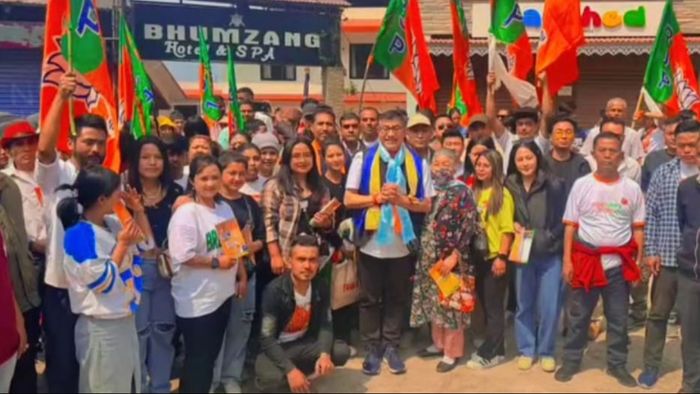Sikkim assembly elections 2024: BJP takes bold move, goes solo in state assembly polls, ends alliance with SKM
To carve its niche in Sikkim politics, the Bharatiya Janata Party (BJP) is capitalizing on nationalist fervour and welfare initiatives challenging the dominance of regional parties that have long held sway since the state's merger with India fifty years ago.

- Apr 03, 2024,
- Updated Apr 03, 2024, 6:53 PM IST
To carve its niche in Sikkim politics, the Bharatiya Janata Party (BJP) is capitalizing on nationalist fervour and welfare initiatives challenging the dominance of regional parties that have long held sway since the state's merger with India fifty years ago.
After a failed alliance negotiation with the Sikkim Krantikari Morcha (SKM), the saffron party has opted to contest independently in the upcoming Sikkim Assembly elections slated for April 19. The rift stemmed from disagreements over seat allocations compelling the BJP's decision to forge ahead solo.
Previously commanding 12 seats in the outgoing assembly, primarily through defections from the opposition Sikkim Democratic Front (SDF), the BJP now faces a setback with five defections leaving only seven members to vie for seats in the upcoming polls.
Also Read: Sikkim assembly elections 2024: Former MLA vows to restore Gangtok's status as one of India's safest cities
Despite the setback, BJP's Sikkim unit president, DR Thapa remains optimistic rallying support around Prime Minister Narendra Modi's leadership and the promise of aligning Sikkim with the national development agenda.
"Sikkim's strategic significance demands a robust government to safeguard the rights of its people and propel development in tandem with national aspirations," said Thapa.
However, facing fierce opposition rhetoric, particularly from the SKM candidate Kala Rai, who scoffs at the notion of BJP's ascent in Sikkim's hilly terrain, claiming "the lotus does not bloom in hills."
Meanwhile, other opposition factions, including the Sikkim Democratic Front and the Citizen Action Party (CAP) have sounded alarm bells cautioning against BJP's potential dilution of Sikkim's special status protected under Article 371 (F) of the constitution.
Critics accuse the BJP of jeopardizing indigenous rights, especially with recent legislative amendments expanding the definition of 'Sikkimese' to include descendants of old settlers, a move defended by the BJP as a means to grant tax exemptions.